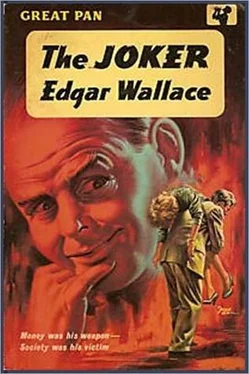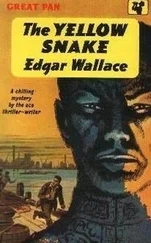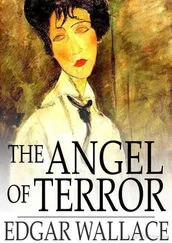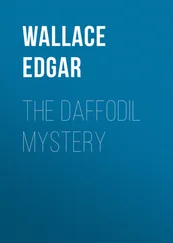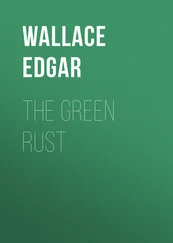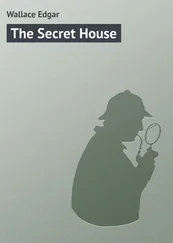And thenceforward Mr Harlow’s name began to appear in the records of important transactions. Family fortunes dropped into his lap. Miss Mercy had been fabulously rich. She had left him every penny of her fortune, with the exception of Ł100 to Lucy Edwins in recognition of her faithful service, realising that she will not regard this sum as inadequate in view of the great service I rendered to her.’ Then Miss Henrietta died; and when the death duties were paid there was the greater part of two millions. Miss Alice left more. The bachelor uncle in New York died a comparative pauper, leaving a beggarly six hundred thousand.
Mr Harlow’s house was a rather ugly three-storey building which occupied a small island site, possibly the most valuable in Park Lane, though the actual entrance was not in that exclusive thoroughfare, but in the side street. He opened the door with a key and walked into the hall. The door to the library faced him. There were some letters on the table, which he scanned through rapidly, opening only one. It was from Ellenbury; and just then Mr Harlow was annoyed with Ellenbury; he had supplied erroneous information about Aileen Rivers, and had made him look a fool.
He read the letter carefully, and then dropped it in the fire and watched it turn black.
‘A useful man, but a thought too anxious. It was a mistake perhaps to keep him so taut. He must be let down,’ Mr Harlow decided. A little of his own confidence must be infused into his helper. Too great a desire to please, too present a fear of failure: those were Ellenbury’s weaknesses.
He pressed an ivory bell on his desk, sat down, reached to the wall, slid back a panel and took out a small black bottle, a siphon and a glass. He poured out barely more whisky than was enough to cover the bottom of the tumbler, and filled it to the top with soda-water. The glass was half-empty when Mrs Edwins, his housekeeper, came in without knocking. A tall, yellow-faced woman, with burning black eyes, she showed nothing of the slowness or decrepitude that might have been expected in a woman near seventy.
‘You rang?’
Miss Mercy’s maid of other days had a voice as sharp and clear as a bugle note. She stood before the desk, her hands behind her, her eyes fixed on his.
‘Yes,’ he said, turning over his letters once more. ‘Is everything all right?’
‘Everything.’
Like a bugle note and with some of a bugle’s stridency.
‘Couldn’t we keep a servant in the house?’ she asked. ‘The hours are a little too long for me. I didn’t get to bed until one o’clock yesterday, and I had to be up at seven to let them in.’
It was a curious fact that no servants slept at No. 704, Park Lane. There was not a house of its size, or an establishment of such pretensions, in all the country where every servant slept out. Mr Harlow’s excuse to his friends was that the room space was too valuable for servants, but he denied this by hiring an expensive house in Charles Street for their accommodation.
‘No, I don’t think it is necessary,’ he said, pursing his lips. ‘I thought you understood that.’
‘I might die, or be taken ill in the night,’ said Mrs Edwins dispassionately, ‘and then where would you be?’
He smiled. ‘It would be rather a case of where would you be, I think.’ he said in excellent humour. ‘Nothing has happened?’
She considered her answer before she replied. ‘Somebody called, that was all,’ she said, ‘but I’ll tell you about that afterwards.’
He was amused. ‘A good many people call. Very well—be mysterious!’
He got up from his chair and walked out of the room, and she followed. There was a tiny elevator in the hall, big enough for two, but she declined this conveyance.
‘I’ll walk,’ she said, and he laughed softly.
‘You were complaining about feeling tired just now,’ he retorted as he closed the grille before the little lift.
He pressed the top button, the elevator moved swiftly and noiselessly upwards and came at last to a stop on the third floor, where he stepped out to a square-carpeted landing from which led two doors. Here he waited, humming softly to himself, until the woman came in sight round the bend of the stairs.
‘You’re an athlete,’ he said pleasantly and, jerking out a pocket-chain, selected a small key and opened the door on the left.
It was a big and artistically furnished apartment, lit from the cornice by concealed light and from the floor by two red-shaded lamps. In one corner of the room was an ornate wooden bed of red lacquer decorated with Chinese paintings in gold. At a small Empire desk near one of the windows, which were heavily curtained, sat a man. He was almost as tall as Stratford Harlow; and the features which would have arrested the attention of a stranger were his big, dome-shaped forehead and the long golden-yellow beard which, in spite of his age—and he must have been as old as Harlow himself—was untinged with grey.
He was reading, one thin hand on his cheek, his eyes fixed upon the book that lay or the desk, and not until Mr Harlow spoke did he look up.
‘Hallo, Marling!’ said Stratford Harlow gently.
The man leaned back in his chair, closed the book, mechanically marking his place with a thin tortoise-shell paper-knife.
‘Good evening,’ he said simply.
‘Time you had your walk, isn’t it?’
There was a second door in the room and towards this Mr Harlow glanced.
‘Yes, I suppose it is,’ said the man, and rose.
He wore a short dressing-jacket of dark blue velvet; his feet were encased in red morocco slippers. His glance strayed back to the closed book as though he were reluctant to have his reading interrupted.
‘The Odes of Horace,’ he said; ‘an English translation, but full of errors.’
‘Yes, yes,’ smiled Mr Harlow. ‘It’s rather late for Horace.’
The woman was standing by the door, stiffly erect, her hands folded in front of her, her dark eyes on her master.
‘Do you know who you are, my friend?’ he asked.
The bearded man put his white hand to his forehead.
‘I am Saul Marling, a graduate of Balliol,’ he said.
Mr Harlow nodded.
‘And—anything eke?’ he asked.
Again the hand went up to the dome-shaped forehead.
‘I forget…how absurd! It was something I saw, wasn’t it?’ he asked anxiously.
‘Something you saw,’ agreed Mr Harlow, ‘just before Miss Mercy died.’
The other heaved a sigh.
‘She died very suddenly. She was very kind to me in all my little troubles. Awfully suddenly! She used to sit on the chair talking to you, and then one night after dinner she fell down.’
‘On the floor,’ nodded Mr Harlow, almost cheerfully. ‘But you saw something, didn’t you?’ he encouraged. ‘A little bottle and some blue stuff. Wake up, Marling! You remember the little bottle and the blue stuff?’
The man shook his head.
‘Not clearly…that was before you and Mrs Edwins took me away. I drank the white powders—they fizzed like a seidlitz powder—and then…’
‘To the country,’ smiled Harlow. ‘You were ill, my poor old fellow, and we had to prescribe something to quieten you. You’re all right?’
‘My head is a little confused—’ began the man, but Harlow laughed, caught him almost affectionately by the arm and, opening the narrow door, led his companion up a flight of steep stairs. At the top of this was another door, which Mr Harlow unlocked. They were on the roof of Greenhart House, a wide, flat expanse of asphalt confined within a breast-high parapet. For half an hour they walked up and down arm-in-arm, the bigger man talking all the time. The fog was thick, the street lamps showed themselves below as patches of dull yellow luminosity.
Читать дальше
